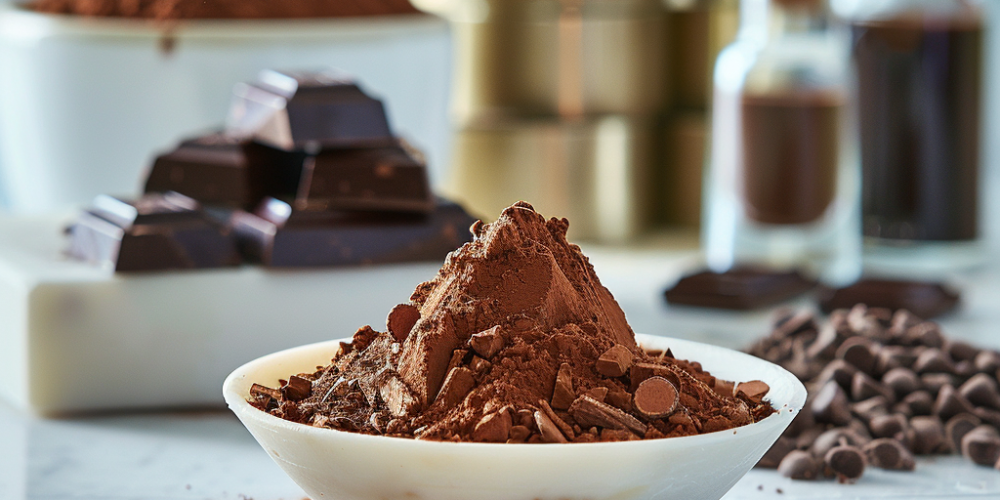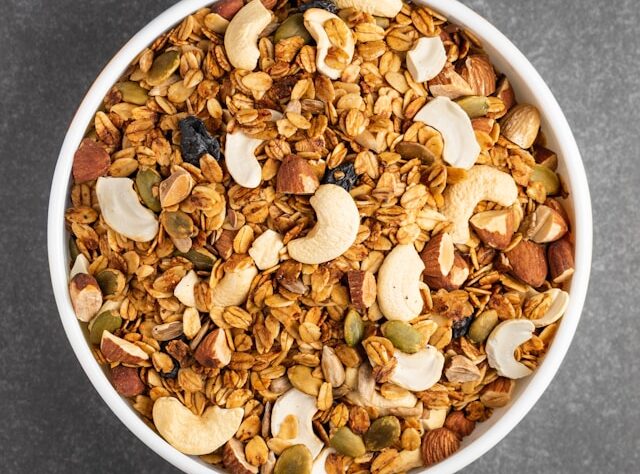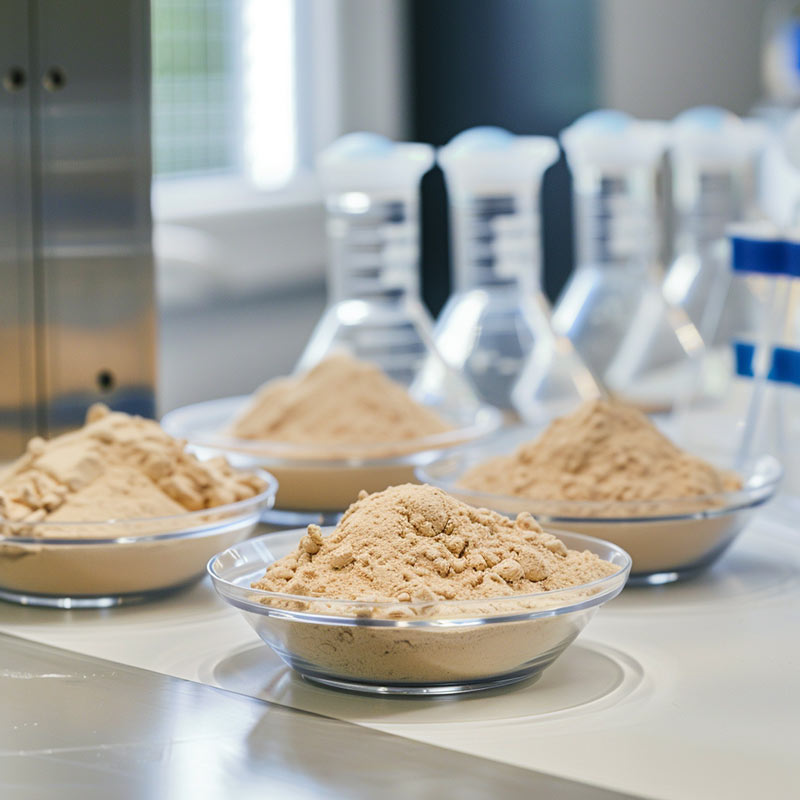The Path Through the Protein Jungle
What exactly is behind the term “protein” and why is it of such great importance for our body? This blog reveals the essential facts about protein and clearly explains what it actually is.


Daily Protein Requirement
Protein for maximum performance

Leucine
The most important building block for muscles

Plant vs. Animal Proteins
The biological availability
The importance of protein for athletic performance and different phases of life
Protein is an important part of the diet, not only for athletes, but also for people at different stages of life, especially women and people over 40. The question of whether additional protein intake is necessary to improve athletic performance has long been debated. While it was previously thought that athletes could get by with the recommended daily amount, new research has shown that increasing protein intake can bring benefits. But what exactly is behind the term “protein” and why is it so important for our body? This blog reveals the essential facts about protein and clearly explains what it actually is.
Why Proteins are Important for the Body
Proteins are vital for a healthy body. They are the building blocks of our muscles, organs, skin, hair, hormones and blood cells. Proteins also play a decisive role in the defense against diseases and in the transport of oxygen in the body. They also support digestion and help to repair damaged DNA. During training and physical activity, these functions become particularly important as the body needs more oxygen and tissue needs to be repaired. This is why the protein requirement increases during sport. Our craving for the nutrients that make up our muscles shows how important protein is for our strength and vitality, especially as we get older.
Daily Protein Requirement
 Proteins are made up of twenty different amino acids. The body can produce twelve of these on its own, while the rest are considered essential amino acids. The essential amino acids include: Isoleucine, leucine, lysine, methionine, phenylalanine, threonine, tryptophan, valine and, for infants, histidine. These must be taken in through food.
Proteins are made up of twenty different amino acids. The body can produce twelve of these on its own, while the rest are considered essential amino acids. The essential amino acids include: Isoleucine, leucine, lysine, methionine, phenylalanine, threonine, tryptophan, valine and, for infants, histidine. These must be taken in through food.
Earlier guidelines recommended a daily protein intake of 0.8 grams per kilogram of body weight, but this is now considered outdated and is considered a minimum value. Current findings suggest that an amount of 1.2 to 1.5 grams per kilogram of body weight is appropriate. In the field of sport, a range of 1.2 to 2.0 grams has long been recommended.
With the onset of muscle loss from around the age of 30 and its acceleration in the following decades, anabolic resistance develops. This means that older people need an increased protein intake to achieve the same effect as before. Older people are therefore recommended to consume around 1.5 grams per kilogram of body weight.
For example, a 60 kg woman aged 50 would need around 90 grams of protein, while a man of the same age weighing 80 kg would need around 120 grams. It is important to remember that a portion of meat (100g) contains about 20-25g of protein, a glass of milk (2dl) about 6g of protein and an egg about 6g of protein. Careful planning and knowledge of protein-rich foods are crucial to ensure sufficient intake.
You can find out more about this in our previous blog article: How ageing affects health and fitness.
Food with about 20 g Protein
- 600 ml milk
- 450 g Natural yogurt
- 85 g cheese
- 3 eggs
- 100 g meat
The Role of the Essential Amino Acid Leucine
 The crucial role of leucine, an essential amino acid, extends not only to the field of sport, but also to the ageing process. As a key component of muscle protein synthesis, leucine is of crucial importance for muscle building, regeneration after training and maintaining muscle mass in advanced age. A sufficient supply of leucine is necessary to maximize muscle protein synthesis. This is often referred to as the “leucine threshold” and is usually around 2-3 grams per meal, but for older athletes (over 40 or 50) it can be even higher, at 5 grams.
The crucial role of leucine, an essential amino acid, extends not only to the field of sport, but also to the ageing process. As a key component of muscle protein synthesis, leucine is of crucial importance for muscle building, regeneration after training and maintaining muscle mass in advanced age. A sufficient supply of leucine is necessary to maximize muscle protein synthesis. This is often referred to as the “leucine threshold” and is usually around 2-3 grams per meal, but for older athletes (over 40 or 50) it can be even higher, at 5 grams.
A study has shown that athletes who consumed leucine after strength training experienced less muscle protein breakdown than those who did not consume leucine. This illustrates the essential role of leucine in sport and in older active people, in whom natural muscle loss begins from the age of 30.
Leucine is found in abundance in many animal protein sources such as eggs, dairy products, meat, fish and poultry. Whey protein contains particularly high concentrations. In order to achieve an optimal intake of leucine, it is important to adjust your food choices accordingly. For example, you would have to consume about 1 liter of milk to get 3 g of leucine. For older people aiming for an intake of 5 g leucine per meal, around 1.7 liters would be required.
Which Proteins Are More Efficient: Plant-Based or Animal-Based?
Both plant and animal proteins consist of the same 20 amino acids, nine of which are essential for humans, i.e. they must be ingested through food as the body cannot produce them itself. In general, animal proteins such as meat, eggs, dairy products and fish have a higher biological value than vegetable proteins such as tofu, beans and cereals. Animal proteins contain all the essential amino acids our body needs in sufficient quantities and can metabolize them easily and quickly. In contrast, plant proteins are suboptimal protein sources, as they only provide the complete amino acid profile to a lesser extent and do not cover all essential amino acids. Animal proteins would therefore be preferred for reasons of efficiency.

Is a Diet with Purely Plant-Based Proteins Possible?
It is theoretically possible to obtain all essential amino acids from plant sources alone, but it won’t be easy. Although plant proteins contain all the essential amino acids, they are generally present in smaller quantities than in animal proteins. Since plant proteins only provide a fraction of the essential amino acids, the body cannot use them effectively to support its protein metabolism.
For optimal protein metabolism, the body needs all 20 amino acids, most of which it can synthesize itself. However, the nine essential amino acids must be obtained from food. A purely plant-based diet often lacks some essential amino acids (low biological value), which means that the body does not receive all the necessary building blocks for protein synthesis. It is as if the body is trying to build a house, but it is missing some of the basic building blocks.
If you decide to follow a vegan diet, you need to find out in detail how you can obtain sufficient amounts of essential amino acids by combining different plant-based foods. Juggling these building blocks is a challenging task that most vegans fail at if they switch to a purely plant-based diet without sufficient knowledge. The consequence? Deficiency symptoms that can affect not only proteins, but also various minerals and vitamins.

